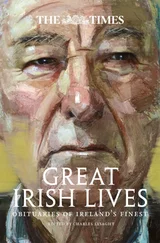On attacking the Bastille they secured the Governor, the MARQUIS DE L’AUNEY [now spelled de Launay], and the Commandant of the Garrison, whom they conducted to the Place de Grieve, the place of public execution, where they beheaded them, stuck their heads on tent poles, and carried them in triumph to the Palais Royal, and through the streets of Paris. The MARQUIS DE L’AUNEY was particularly odious to the people, from the nature of his employment, and it is therefore no wonder that he should be singled out amongst the first victims of their resentment.
The Hotel de Ville, or Mansion-house, was the place that was next attacked. M. de FLESSIL, the Prevot de Marchand, or Lord Mayor, had made himself obnoxious by attempting to read publicly some instructions he had received from the King. In doing this he was stabbed in several places, his head cut off, and carried away. M. de CROSNE, the Lieutenant de Police, shared the same fate, only that he was hung up in the public streets.

For Britons – those property-owners that read The Times , at any rate – the French Revolution was the most astonishing and shocking event of their era. The fear (or the hope) that the same might happen in Britain coloured much of the foreign and domestic politics of the next century.
The toppling of the French monarchy had begun as a debate about how to fund the state more fairly, but anger at broader grievances in society spiralled into mob violence. The aim of the crowd in storming the Bastille – built as a fortress during the Hundred Years War – was not, however, to destroy a symbol of despotism, but to find powder and shot for the thousands of muskets they had seized earlier. There were only seven prisoners inside; the Marquis de Sade had been moved to a lunatic asylum the previous week.
News of the attack is said to have prompted Louis XVI to ask if this was a revolt. “No, Sire,” replied the Duke de la Rochefoucauld. “It is a revolution.”
THE BATTLE OF TRAFALGAR
8 November 1805
We have received, by the Pickle schooner, several accounts relative to the late glorious action for the truth of which we can vouch.
Towards the middle of last month Admiral VILLENEUVE received orders, from Paris, to sail at all events from Cadiz before the 21st, to accomplish a particular object which the EMPEROR had in view. VILLENEUVE knew that Admiral LOUIS had been detached with several ships from the fleet off Cadiz and supposed that the force had been, in consequence, reduced to about twenty sail of the line, it not having transpired that reinforcement had arrived shortly after Admiral LOUIS’S departure. Lord NELSON had been apprised of the instructions which VILLENEUVE had received, and of his intention to obey them. His Lordship was, therefore, thoroughly prepared to meet the enemy. On the other hand, the Commanders in Chief of the Combined Fleet having learnt that the Hero of the Nile commanded the blockading squadron, were fully sensible of the kind of reception they would meet should he fall in with them, and therefore, it is presumed, had consulted upon all the means necessary for a vigorous defence. It was not possible that two fleets could meet on more equal terms with respect to preparation.
As soon as Lord NELSON was convinced that he had it in his power to bring the enemy to action, on the 21 st, he caused it to be understood on board of every ship, “That England expected every man to do his duty.” There was, however, little necessity for the intimation; every man seemed to partake of the ardour of the Commander in Chief, and burned with impatience to commence the action. On no occasion whatever have our brave Tars felt such confidence of success. It was the word throughout the fleet, “That when led on by Lord NELSON, they were sure of victory, whatever might be the disparity of force.”
At the commencement of the action our ships contested with each other, as far as was consistent with the preservation of order, the honour to get first engaged. The Victory did not fire a shot until she was close along-side the Santissima Trinidad , when the Commander in Chief ordered her to be lashed to the enemy. As soon as the men began their work, the Commander of the Santissima Trinidad desired his men to assist in lashing his ship to the Victory . It was about two o’clock, when the battle was at the hottest, that the gallant NELSON received a musket ball in his breast. What was very remarkable, it absolutely penetrated through the star which he wore.
The Britannia and Prince having driven from their stations, were prevented from sharing in the action to the extent they could have wished. The Belleisle did wonders; she was the first in the action, and one of the last out; and, we are sorry to say, the number of her killed and wounded is very great. The Victory also sustained a great loss.

It had taken more than a fortnight for news of the battle to be conveyed to London from the waters near Gibraltar. The Franco-Spanish fleet, commanded by Admiral Villeneuve – a survivor of the Battle of the Nile – had left Cadiz three days prior to the action at Trafalgar on 21 October.
Villeneuve was making for the Channel, where Napoleon intended to assemble an even larger navy to protect his projected invasion of Britain. Historians suspect that the French admiral knew he had lost the Emperor’s confidence and sailed in the hope of redeeming his reputation rather than await the arrival of the officer sent to replace him.
When it was intercepted by Nelson, Villeneuve’s fleet outnumbered the British by 33 to 27 ships. However, the Englishman’s unorthodox tactics – slicing through the enemy line rather than sailing parallel to it – proved decisive. Villeneuve was taken prisoner, attended Nelson’s funeral and, after returning to France, was found stabbed to death in 1806. Doubts remain about the official verdict of suicide.
THE ABOLITION OF SLAVERY
24 February 1807
His Lordship [Lord HOWICK] said, that he had seldom found himself under greater embarrassment than in rising to perform the duty imposed upon him on the present evening. So many details were pressing on him, that he should be fearful of trespassing at great length on the time of the House were it not that the subject was so well known, had been so often before the House, and had been so thoroughly investigated in all its points, and in all their bearings, that he hoped it would not be necessary for him to take up much of the time of the House in going into detail. At the same time the question was of such great importance, that he should be unwilling to let a discussion of it proceed, especially in this new Parliament, without stating the arguments, reasons and evidence, which ought to weigh with the House in contemplating this Bill. He was apprehensive of bringing forward too much, and much at a loss to know what parts to select, to save as much as possible the time of the House. The question, however, had recently received some very great disembarrassments; and, indeed, he was not aware at that moment that there was much disposition in any one to contest the necessity and propriety of the measure. He believed it was almost generally allowed that the traffic was fraught with cruelty and injustice, and that the results from it in Africa, were the most frightful miseries to the unhappy natives of that country. It had long been a source of encouragement to kidnapping and robbery, and had created incentives to the most barbarous murders; and, in every sense in which it could be viewed, it was a stain and a disgrace to civilized nations to continue it. From this part of the argument he was, therefore, in a great measure relieved: there was, however, one part of the question which deserved some observation, namely, that of carrying slaves to the West Indies, and it gave him great satisfaction to think, that the House had, on the present occasion, heard nothing from the Learned Counsel at the Bar, of the luxuries of the Middle Passage. These topics had now vanished, and he believed there was not a man in the House, who did not allow that the Middle Passage had been fraught with the most dreadful mischiefs. There had, he believed, been one or two individuals, who had differed from him on this subject; one of whom had even said, he was so well convinced of the propriety and policy of the Slave Trade, that he viewed it as a blessing to the Africans; and if there was no such traffic, he would himself propose to establish it. In another place it had been said, that it was justified by Scripture; but he was of opinion, that it was contrary to every principle of humanity, and every sentiment of the Christian religion. It could therefore, only be fairly said, that it existed in policy and justice, and not in humanity.
Читать дальше













